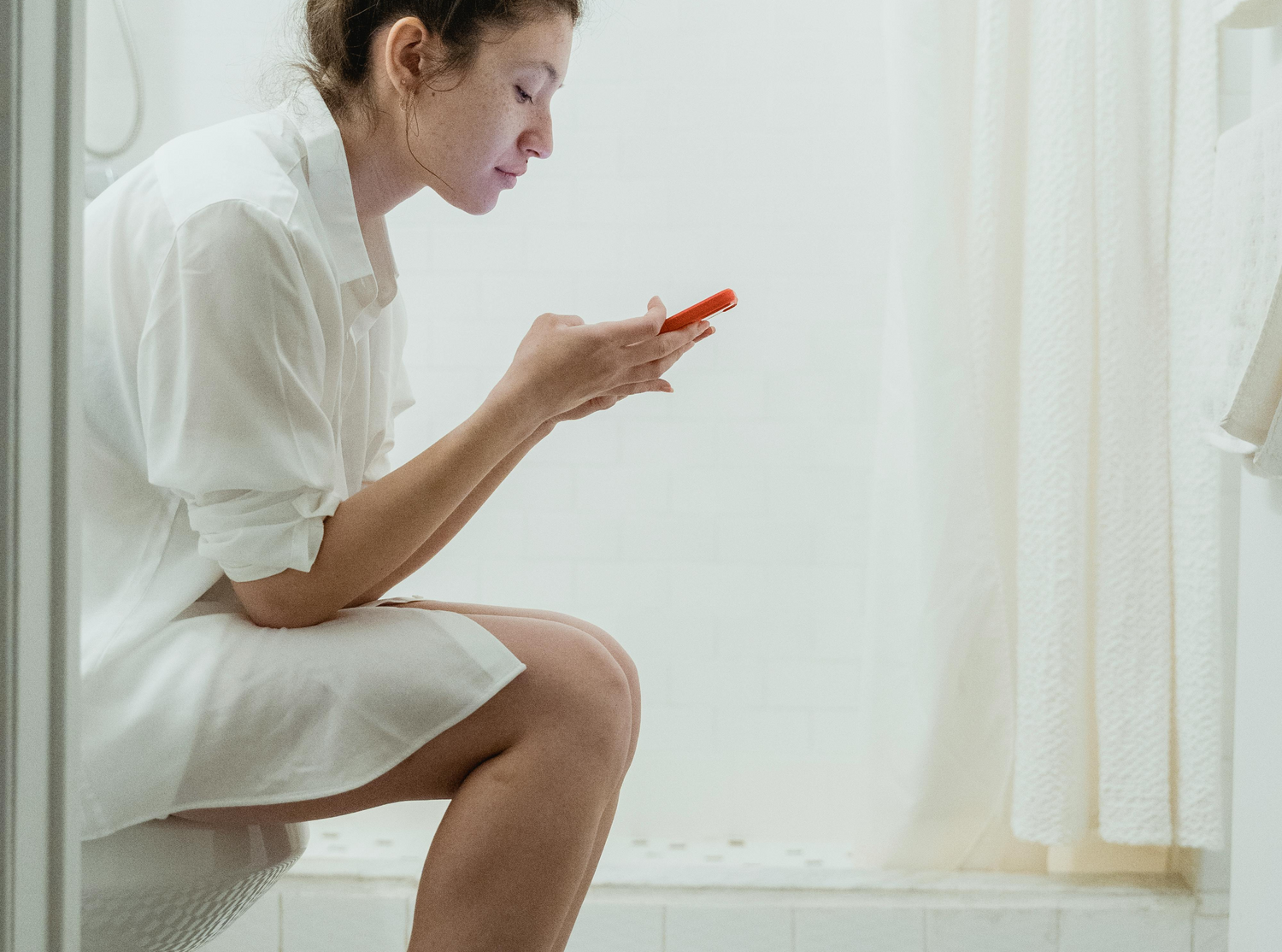To keep the bladder healthy, there are a number of useful tips. These tips are intended to make people aware of the best habits around urination and to prevent damage to the bladder and pelvic floor.
1. Correct posture when urinating for men and women
- Place both feet flat on the floor.
- knees directly above the feet
- Make your back hollow
- Shoulders relaxed
- Hands on knees for stability
- This pose helps to relax the pelvic floor muscles .
- Don't push with your stomach
- Take your time
- This allows the bladder to empty completely relaxed.
2. Do not squat or lean over the toilet

- Avoid squatting or leaning over the toilet as this prevents complete relaxation of the pelvic floor muscles.
- Incomplete emptying**: This position can impede the flow of urine, which can lead to a bladder that is not completely emptied. Repeated habit of this can impair bladder function.
- Use a cleaning wipe or toilet seat cover if public toilets are less hygienic.
- If you need to hang before using the toilet, lean against a wall or door to relieve pressure on the pelvic floor.
3. Follow the natural flow
Urinating should be effortless, like turning on a light switch. There is no need to contract muscles or exert effort to pass urine.
Relax: It is essential to relax the pelvic floor muscles during urination, rather than activating them.
If someone consistently uses force to urinate, it can confuse the pelvic floor and result in behavior that conflicts with what should be natural. Therefore, the advice is to let the flow take its course and never interrupt it.
If someone notices that they need to push to urinate , this could be an indication of an underlying problem with the pelvic floor muscles. In such a case, it is advisable to consult a doctor.
4. Stop peeing 'just in case'
Another habit that can confuse your bladder is a “just in case” pee.
Whether you have a long car ride ahead of you or you want to avoid waking up in the middle of the night with a full bladder, the last thing anyone wants is to feel the urge to pee at an inconvenient time. So you empty your bladder when you don’t have the urge—smart, right? Well, not really.
You may think that a “just in case” pee is just good planning, but if it becomes a daily habit, it can trigger your bladder to urinate less often, decreasing its capacity.
Over time, this can cause your bladder to stop functioning properly and become overactive. It is crucial to always listen to your body and only urinate when necessary.
5. Don't hold it in
Having to hold your urine can happen from time to time.
Maybe you're busy running errands and can't find a public restroom, or you're stuck in a meeting - we've all experienced the times when we really need to go but just can't seem to find the chance.
Holding your pee occasionally won’t cause any problems, but resisting the urge to pee shouldn’t become a habit. Besides being uncomfortable, holding your pee can weaken your pelvic floor.
It can also make you more susceptible to urinary tract infections. If you don't empty your bladder often enough, bacteria are more likely to build up in your urinary tract and cause an infection.
This can also happen if you don't drink enough water, so stay hydrated and take time to go to the bathroom regularly.
The only time you should hold your pee is if you are training your bladder to treat incontinence , but this should be done under the supervision of a doctor or pelvic floor specialist! Otherwise, listen to your body and don't let your bladder wait too long.



















